Cornish Rock chickens, celebrated for their substantial meat production, may leave you pondering: Do Cornish Rock Chickens Lay Eggs? While these chickens possess the capability to lay eggs, rockscapes.net clarifies they are primarily bred for meat and are not ideal for consistent egg production. This article explores the egg-laying potential of Cornish Rocks, offering guidance and insights for those interested in these unique fowl.
1. Understanding Cornish Rock Chickens
Cornish Rock chickens, also recognized as Cornish Cross or Cornish X, stand out as hybrid chickens meticulously bred for meat production. These robust birds exhibit rapid growth and are favored for their economic efficiency in meat production.
1.1. The Heritage of Cornish Rock Chickens
While the precise genetic makeup of Cornish Rock chickens remains somewhat veiled, it’s generally acknowledged that they originate from selective breeding processes involving Cornish chickens and White Plymouth Rocks. These chickens are celebrated for their rapid growth rate and significant meat yield, making them a staple in the commercial poultry industry. In fact, the chicken you purchase at the grocery store is highly likely to be a Cornish Rock.
1.2. Growth Rate and Maturity
Cornish Rock chickens exhibit an exceptionally fast growth rate, typically reaching butcher weight around 8 weeks of age. This rapid growth offers a distinct advantage for those aiming to economically raise meat chickens, as it translates to fewer feeding days and reduced overall feed consumption.
1.3. Health Considerations
Despite their rapid growth, Cornish Rock chickens are prone to health issues like heart problems and leg problems. These issues arise from their bodies growing faster than their hearts and legs can support. However, these issues can be mitigated by carefully managing their feed intake and limiting their growth period to 8-10 weeks.
1.4. Cornish Chickens Vs Standard Cornish Chickens
The standard Cornish breed, often called the Indian Game Chicken, differs from Cornish Crosses. While still a substantial bird weighing up to 9 pounds, standard Cornish chickens are easier to raise with fewer health problems. They were originally bred as game birds.
1.5. Egg Production in Standard Cornish Chickens
Standard Cornish hens lay small, light brown eggs, but in limited quantities—around 160 per year. However, these birds may exhibit a more aggressive temperament, particularly Cornish roosters.
1.6. Benefits and Drawbacks of Standard Cornish Chickens
The primary advantage of standard Cornish chickens is their resilience and lower susceptibility to health issues, making them a forgiving option for novice poultry keepers. The main disadvantage is their slower growth rate compared to Cornish Crosses.
1.7. Cornish Game Hens
Cornish Game Hens are Cornish Crosses processed at 4-5 weeks old, resulting in a smaller, more tender bird often considered a delicacy in fine dining establishments.
2. Can Cornish Cross Chickens Lay Eggs?
Yes, Cornish Cross chickens can lay eggs if they live long enough. While hens generally begin laying around 6 months old, Cornish Crosses might start as early as 4-5 months. However, this is well beyond the recommended butchering age of 8-10 weeks.
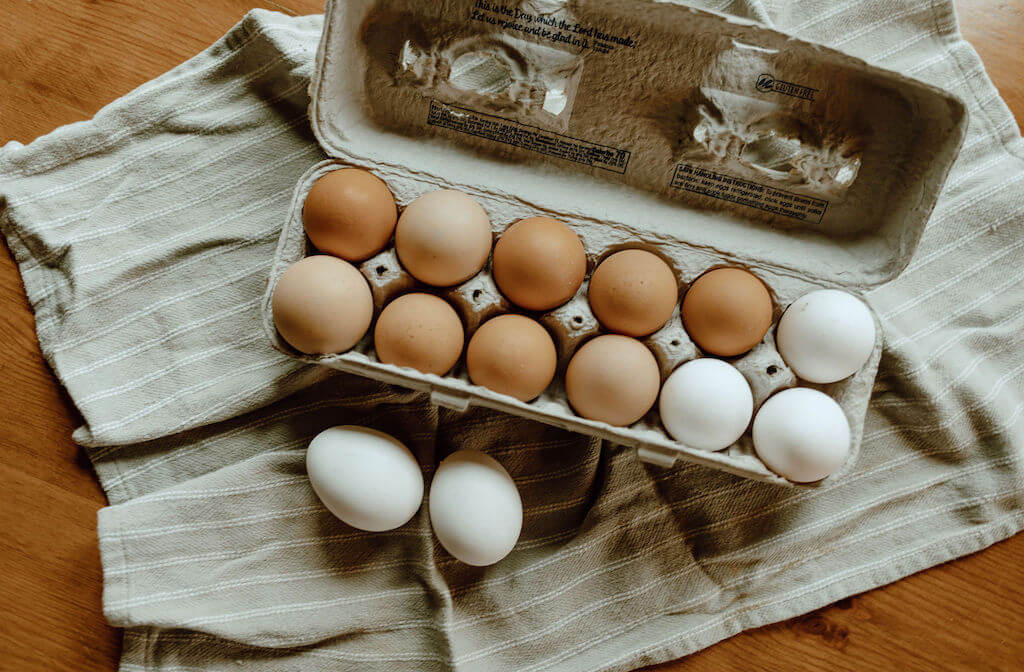 fresh eggs in a carton
fresh eggs in a carton
Since most Cornish Cross birds develop health issues before they can lay eggs, they are not typically known for egg production.
2.1. Extending the Lifespan of Cornish Cross Chickens for Egg Laying
Some chicken owners have successfully prolonged the lives of Cornish Cross chickens to facilitate egg laying. This often involves feeding them a lower protein diet to slow their growth rate. Layer feed typically contains around 16% protein, while broiler feed is about 22%.
2.2. Free-Range Environment and Diet
Allowing the birds to roam freely can further slow their growth. A suitable diet for Cornish Cross chickens kept for egg laying might consist mainly of insects and plants, supplemented with small amounts of low-protein chicken feed.
2.3. Increased Vulnerability to Predators
Free-ranging Cornish Crosses are more vulnerable to predators due to their larger size and slower movement. Their weight also prevents them from roosting off the ground like other chickens.
2.4. Egg Characteristics and Production
If Cornish Crosses live long enough to lay eggs, they produce light brown or cream-colored eggs. They may lay up to 160 eggs per year, which is less than many laying breeds but still notable for such large hens.
3. Ethical Concerns of Raising Cornish Crosses as Egg Layers
The ethical considerations surrounding raising Cornish Crosses stem from their breeding for rapid growth and their susceptibility to health problems.
3.1. Quality of Life Considerations
Whether Cornish Crosses have a compromised quality of life depends on their care. By avoiding overfeeding, providing adequate space, limiting their lifespan to 6-8 weeks, and butchering them humanely, these chickens can lead a decent life.
3.2. Humane Treatment
Raising Cornish Crosses in a mobile chicken tractor and moving them to fresh grass every 1-3 days, followed by humane butchering, ensures a reasonable quality of life.
3.3. Ethical Dilemmas
The ethics of keeping Cornish Crosses long enough to lay eggs are complex, influenced by their diet, mobility, and overall health.
4. Superior Dual-Purpose Chicken Breeds
If you aim to raise chickens for both meat and eggs, Cornish Crosses are not the best choice. Several heritage breeds offer better dual-purpose capabilities.
4.1. Wyandottes
Wyandottes are known for their friendly demeanor, early laying (around 4-5 months), and suitability for processing at the same age.
4.2. Plymouth Rocks
Plymouth Rocks are popular, striped birds that are good layers and can produce eggs for up to 10 years, with a mature weight of 7-10 pounds.
4.3. Brahmas
Brahmas are excellent in cold climates and are slightly larger, weighing 9-12 pounds.
4.4. Buff Orpingtons
Buff Orpingtons are good foragers that can produce 250-280 eggs per year, though they can be broody.
4.5. Rhode Island Reds
Rhode Island Reds are excellent foragers but are smaller than other dual-purpose breeds, weighing 6.5-8.5 pounds.
4.6. Jersey Giants
Jersey Giants are gentle giants, with roosters standing about 24 inches tall and weighing 11-15 pounds. Hens can produce up to 260 eggs per year.
4.7. Choosing a Dual-Purpose Breed
Selecting a dual-purpose breed over Cornish Cross broilers provides the flexibility to raise chickens for both meat and egg production.
5. Identifying Cornish Cross Chickens
Cornish Cross chickens are typically white with red wattles and combs, and yellow legs. They are easily recognized by their broad breasts and relatively short legs. Males and females look similar, although males tend to be slightly larger.
5.1. Appearance of Cornish Cross Chicks
Cornish Cross chicks are fluffy and yellow, resembling many other young birds until they develop their white feathers.
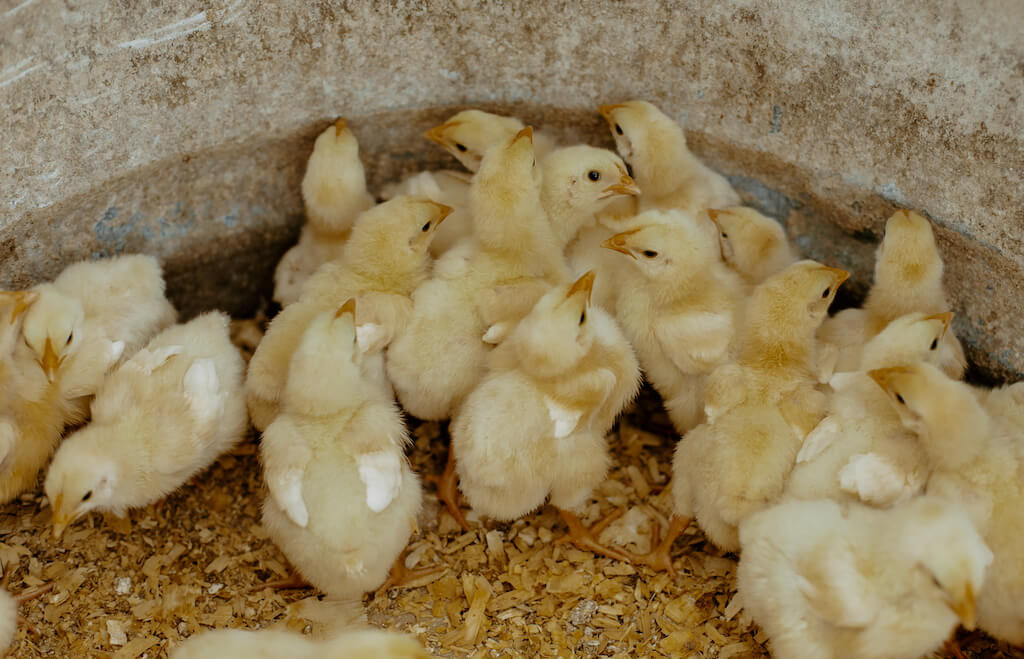 cornish cross chicks
cornish cross chicks
6. Why Choose Cornish Cross Chickens?
Despite their limitations in egg laying and health issues, Cornish Cross chickens offer several advantages.
6.1. Economic Efficiency
Cornish Cross chickens grow faster than other broiler breeds, reducing feed consumption and shortening the rearing period. This allows for more batches to be raised during warmer months.
6.2. Docile Temperament
Cornish Cross chickens are generally docile and friendly, making them easier to handle than other meat bird breeds like Freedom Rangers.
6.3. Availability
Cornish Cross chickens are widely available online and at local feed stores, although finding them can be harder later in the season.
6.4. Control Over Food Quality
Raising your own Cornish Cross chickens allows you to control their diet and ensure they are raised without unwanted additives or practices.
6.5. Potential for Selling
Cornish Cross chickens can be a profitable choice for selling homegrown meat, as they grow quickly and at a lower cost. However, it’s essential to be familiar with local regulations for selling homegrown meat.
6.6. Cost-Effectiveness
The cost-effectiveness of raising Cornish Cross chickens is notable. A recent batch averaged around $9.25 per bird, with each bird weighing about 7-8 pounds.
7. Where to Buy Cornish Cross Meat Birds
Cornish Cross chicks can be purchased online or at local feed stores.
7.1. Online Retailers
Popular online options include Hoover’s Hatchery, Myers Poultry, and McMurray Hatchery.
7.2. Local Feed Stores
Local stores like Tractor Supply Co. are also reliable sources, eliminating concerns about chicks dying during shipping.
7.3. Ordering Online Through Local Retailers
Ordering online through local retailers like Tractor Supply provides access to more options than are typically available in-store.
7.4. Planning Ahead
It’s advisable to plan broiler purchases well in advance, as many hatcheries sell out by springtime. Ordering early ensures a wider selection of ship dates, sexes, and breeds.
7.5. Timing Your Purchase
Choosing the right time of year to raise meat chickens is crucial for success.
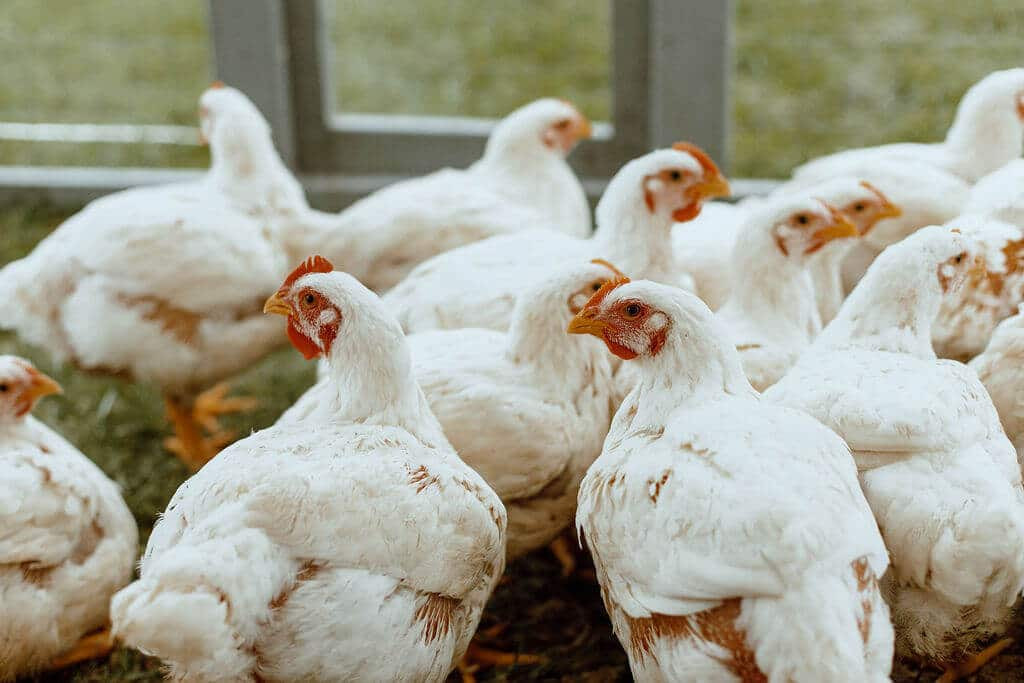 a flock of cornish cross meat chickens
a flock of cornish cross meat chickens
8. FAQs About Raising Cornish Cross Chickens
8.1. How Long Do Cornish Cross Chickens Live?
Cornish Cross meat chickens should be butchered around 8-10 weeks to prevent health problems associated with rapid growth. While they can live longer with a restricted diet, they are not ideal as pets due to their breeding.
8.2. Are Cornish Crosses Hard to Raise?
Cornish Cross chickens require careful management due to their fast growth. Understanding their feeding requirements and butchering schedule is essential to avoid health issues.
8.3. What Kind of Feed Do Cornish Cross Chickens Need?
Cornish Crosses need a 20-22% protein crumble. Restricting their feed to a 12-hour on, 12-hour off schedule after 4 weeks is crucial to prevent overeating.
8.4. How Much Water Do Cornish Cross Chickens Need?
Access to fresh water at all times is vital. A 5-gallon bucket waterer typically lasts about 3 days for 25 broilers.
8.5. How Much Space Do Cornish Cross Chickens Need?
Cornish Cross chickens need less space than other breeds, with about 2 square feet per bird being sufficient. Chicken tractors are helpful for smaller flocks, providing fresh foraging space and natural fertilization.
8.6. What Are the Best Choices for Laying Hens?
If your primary goal is egg production, consider breeds such as White Leghorns, Isa Browns, Olive Eggers/Easter Eggers, and Plymouth Rocks.
9. Further Inquiries About Raising Cornish Crosses
Raising Cornish Crosses involves continuous learning. Share your questions about raising Cornish Crosses in the comments for further insights.
10. Rock Selection and Placement for Your Landscape
Choosing the right rocks and arranging them thoughtfully can transform your yard into a stunning rockscape. At rockscapes.net, we offer expertise in selecting the perfect stones for your design, from large boulders to decorative pebbles.
10.1. Choosing Rocks Based on Climate
Selecting rocks that endure well in your climate is important for maintaining their appearance and stability. According to research from Arizona State University’s School of Earth and Space Exploration, certain types of sandstone are particularly resistant to weathering in arid conditions.
10.2. Rock Placement
The placement of rocks can significantly impact the overall design of your landscape. Larger stones can serve as focal points, while smaller pebbles can fill in gaps and add texture. Professional landscapers often recommend burying a portion of the rock to create a more natural appearance.
10.3. Rockscaping Inspiration
Finding inspiration for your rockscape project can lead to unique and personalized designs. Explore various layouts and consider integrating plants that complement the rock features to create a harmonious landscape.
11. Conclusion
While Cornish Rock chickens are not ideal for egg production, they are an excellent choice for meat production due to their rapid growth and efficiency. For those interested in both meat and eggs, dual-purpose breeds offer a more versatile option.
If you are looking to enhance your landscape with beautiful and durable rocks, visit rockscapes.net for a wide selection and expert advice. Our team can help you choose the perfect stones to create a stunning outdoor space that reflects your personal style and enhances your property’s value. Whether you’re looking for inspiration, detailed information about different types of rocks, or guidance on installation techniques, rockscapes.net is your go-to resource for all things rock and landscape-related.
12. Explore More at Rockscapes.net
Ready to transform your outdoor space with stunning rock features? Visit rockscapes.net today for a wealth of ideas, expert advice, and high-quality materials. Let us help you create the landscape of your dreams.
Address: 1151 S Forest Ave, Tempe, AZ 85281, United States
Phone: +1 (480) 965-9011
Website: rockscapes.net
13. Related Posts
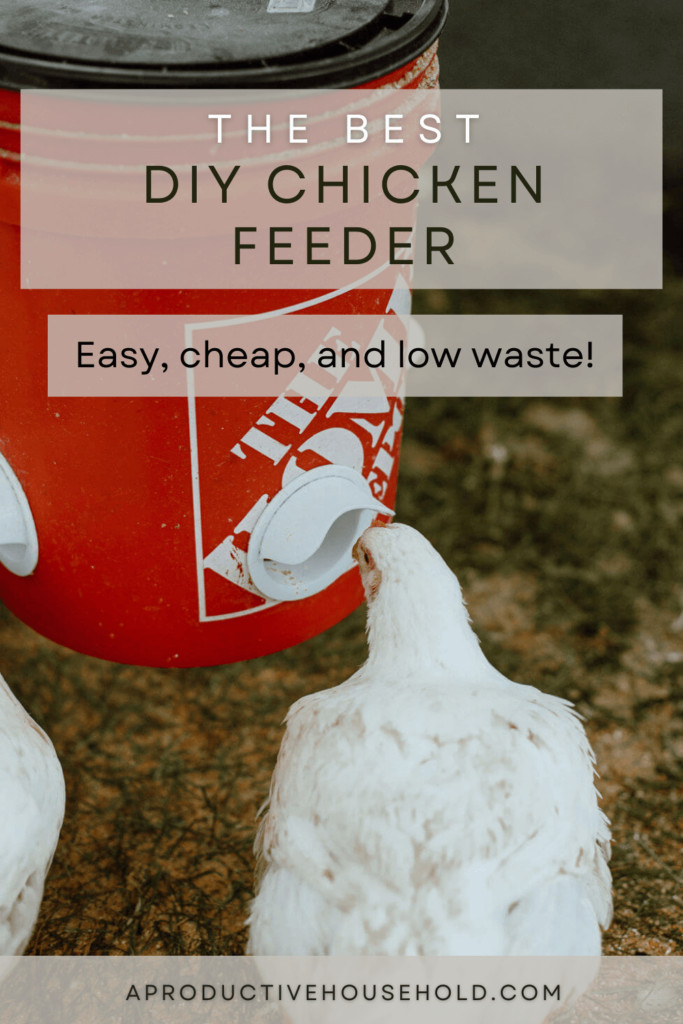 best diy chicken feeder pinterest
best diy chicken feeder pinterest
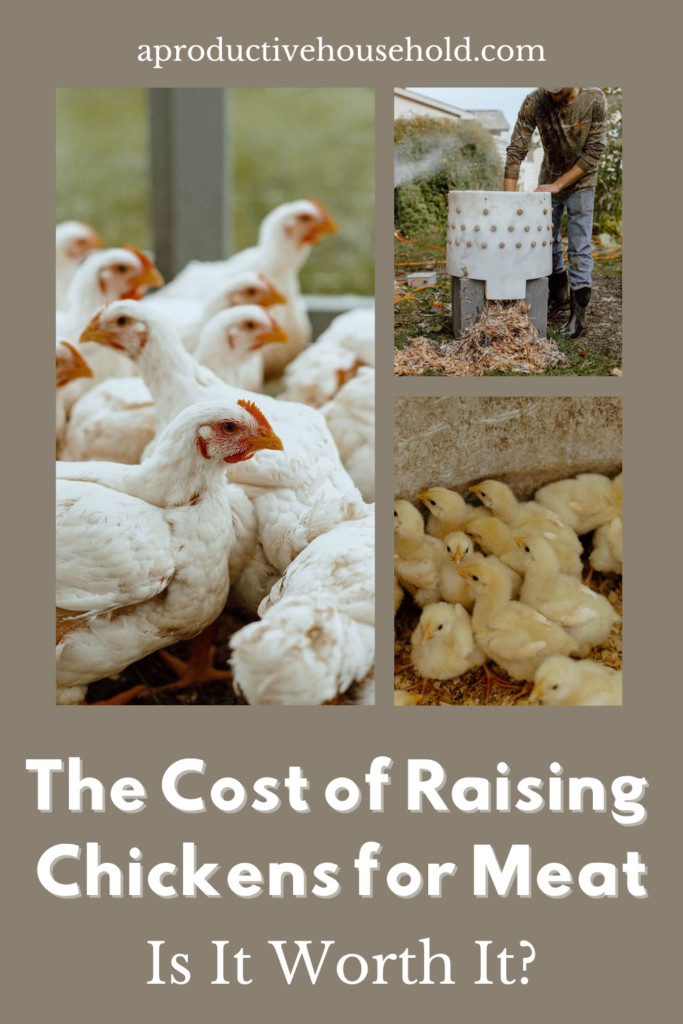 The-Cost-of-Raising-Chickens-for-Meat-pinterest-pin
The-Cost-of-Raising-Chickens-for-Meat-pinterest-pin
[
